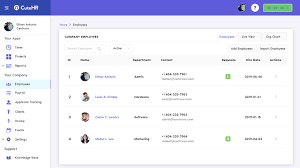What is Premiums in Insurance: Complete Guide to Understanding Costs and Coverage

When navigating the complex world of insurance, one of the most important concepts to understand is what is premiums in insurance. Insurance premiums form the foundation of any policy—whether it’s for health, auto, life, or home coverage. Without a solid understanding of this term, it becomes difficult to evaluate your policy options effectively or make informed financial decisions. Therefore, gaining clarity on what insurance premiums are and how they work is crucial.
Defining What is Premiums in Insurance
To begin with, what is premiums in insurance refers to the amount you pay an insurance company in exchange for coverage. It can be paid monthly, quarterly, semi-annually, or annually, depending on your policy. This payment ensures that you remain covered under your insurance agreement, and it allows the insurer to cover the risk of potential claims.
In simpler terms, your premium is the price tag of peace of mind. Whether you file a claim or not, you are required to pay this amount to maintain the policy. Hence, understanding what you’re paying for and why is essential.
Why Do Insurance Premiums Exist?
Next, it’s important to understand the rationale behind these charges. Insurance is fundamentally about risk management. When you pay a premium, you’re contributing to a collective pool of money. Insurers use this pool to pay out claims to policyholders when unforeseen events occur.
This pooling of funds allows insurers to remain financially stable while providing support to individuals or businesses who encounter covered losses. Thus, understanding what is premiums in insurance also involves recognizing the broader structure of risk-sharing.
What Affects the Amount of Your Insurance Premiums?
Several factors determine how much you’ll pay. These include the type of insurance, the coverage limits, the policyholder’s risk profile, and even geographical location. Here are a few examples:
-
Health Insurance: Age, pre-existing conditions, and lifestyle choices can influence premium amounts.
-
Auto Insurance: Driving history, age, vehicle type, and location all play a role.
-
Home Insurance: Property value, location, and security features can affect premiums.
-
Life Insurance: Age, gender, medical history, and smoking habits are key considerations.
Since so many variables are involved, premiums can vary greatly between individuals and companies. This is another reason why understanding what is premiums in insurance is essential before committing to a plan.
Types of Insurance Premiums
Now that we’ve established the definition, let’s dive into the types of insurance premiums that exist. Broadly, they can be categorized into:
-
Fixed Premiums: These remain unchanged throughout the term of the policy.
-
Flexible Premiums: These may vary based on usage or claims history.
-
Single Premiums: A one-time payment made for the entire policy duration.
Understanding these distinctions will help you choose a plan that aligns with your financial capacity and coverage needs. Moreover, evaluating what is premiums in insurance within the context of premium type gives you more control over policy selection.
How Premiums Relate to Deductibles and Coverage
An important aspect to keep in mind is the relationship between premiums, deductibles, and coverage. Typically, if you opt for a lower premium, you may face a higher deductible. Conversely, a higher premium might reduce your out-of-pocket costs during a claim.
In this context, knowing what is premiums in insurance helps you find a balanced plan. For example, if you’re relatively healthy, you might prefer a lower premium with a higher deductible. On the other hand, if you have frequent medical needs, a higher premium may save you money in the long run.
Can You Reduce Your Insurance Premiums?
Absolutely. Here are several proven strategies that can help lower your premiums:
-
Bundle Policies: Combining home and auto insurance under one provider often leads to discounts.
-
Increase Your Deductible: While this raises your out-of-pocket costs during a claim, it reduces your regular premiums.
-
Maintain a Good Credit Score: In many countries, insurers consider your credit rating when calculating premiums.
-
Stay Claim-Free: A clean history often results in lower premiums over time.
-
Ask for Discounts: Many insurers offer reduced premiums for students, seniors, military personnel, or safe drivers.
Clearly, having a solid understanding of what is premiums in insurance can empower you to find cost-effective coverage options.
The Role of Underwriting in Premium Calculation
Another key component in this discussion is the underwriting process. Underwriters evaluate your risk profile based on your application, background, and other personal data. This evaluation helps insurers determine the appropriate premium to charge.
So, when you ask what is premiums in insurance, part of the answer lies in the underwriting process itself. It’s a behind-the-scenes activity that ensures fairness and minimizes risk for the insurance company.
Are Insurance Premiums Tax Deductible?
This depends on the type of insurance and your jurisdiction. For example, health insurance premiums may be deductible in some regions if they exceed a certain percentage of your income. Similarly, business-related insurance premiums are often tax-deductible.
Consulting a tax advisor can help you understand your local laws. Once again, the more you understand what is premiums in insurance, the better prepared you are to leverage any financial advantages.
Why Knowing Your Premium Matters
It’s not just about cost—it’s also about trust and transparency. A clear understanding of your insurance premium ensures:
-
You know what you’re paying for
-
You can compare different policies effectively
-
You’re not over-insured or under-insured
-
You avoid surprises during the claim process
Therefore, the answer to what is premiums in insurance is more than just a definition—it’s a tool for smarter financial planning.
Real-Life Example of Insurance Premiums
Let’s say Sarah, a 35-year-old graphic designer, is looking for health insurance. She receives quotes from three providers, ranging from $250 to $400 per month. She chooses the middle option at $325, which offers decent coverage and a moderate deductible.
Later in the year, she needs minor surgery. Because she understood what is premiums in insurance, she wasn’t surprised by her out-of-pocket expenses and felt confident that her plan was right for her situation. This simple example underscores the value of informed decision-making.
Digital Tools to Help You Understand Insurance Premiums
Luckily, we live in a digital age where numerous tools and calculators are available online. These resources allow you to:
-
Compare premium rates
-
Estimate future premium increases
-
Understand policy terms
-
Find discount opportunities
Using these tools alongside your knowledge of what is premiums in insurance makes you a savvy, empowered consumer.
Conclusion: Why Understanding What is Premiums in Insurance Matters
In conclusion, understanding what is premiums in insurance is essential for anyone purchasing an insurance policy. It helps you make informed decisions, evaluate different providers, manage your financial responsibilities, and avoid pitfalls.
As you compare insurance policies or reassess your current plan, keep this key concept in mind. By doing so, you not only save money but also gain peace of mind knowing that your coverage truly fits your needs.




